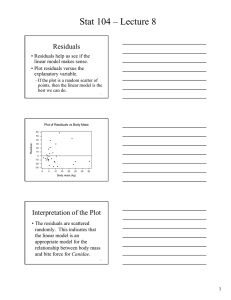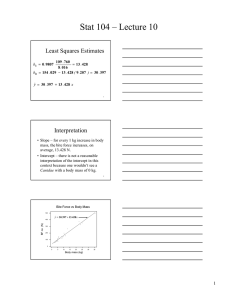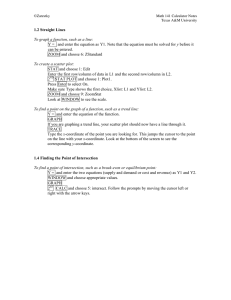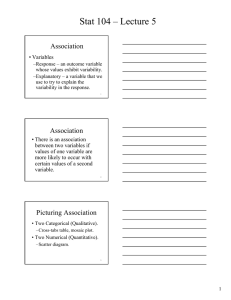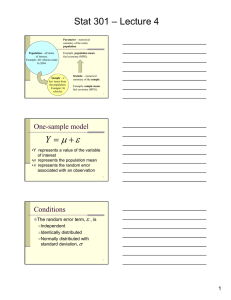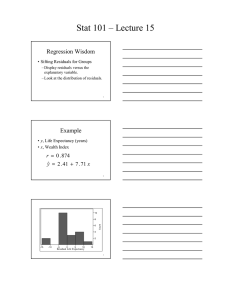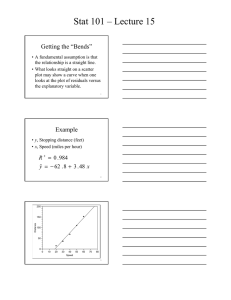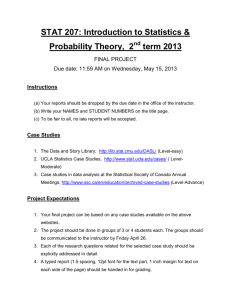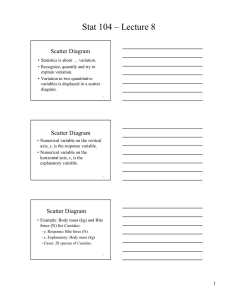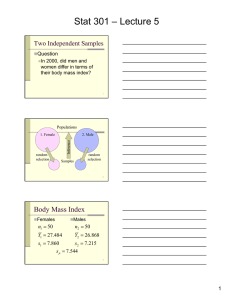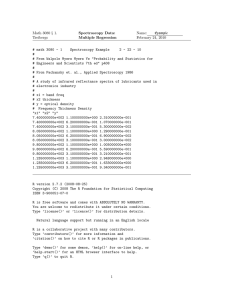Stat 104 – Lecture 8 Residuals
advertisement
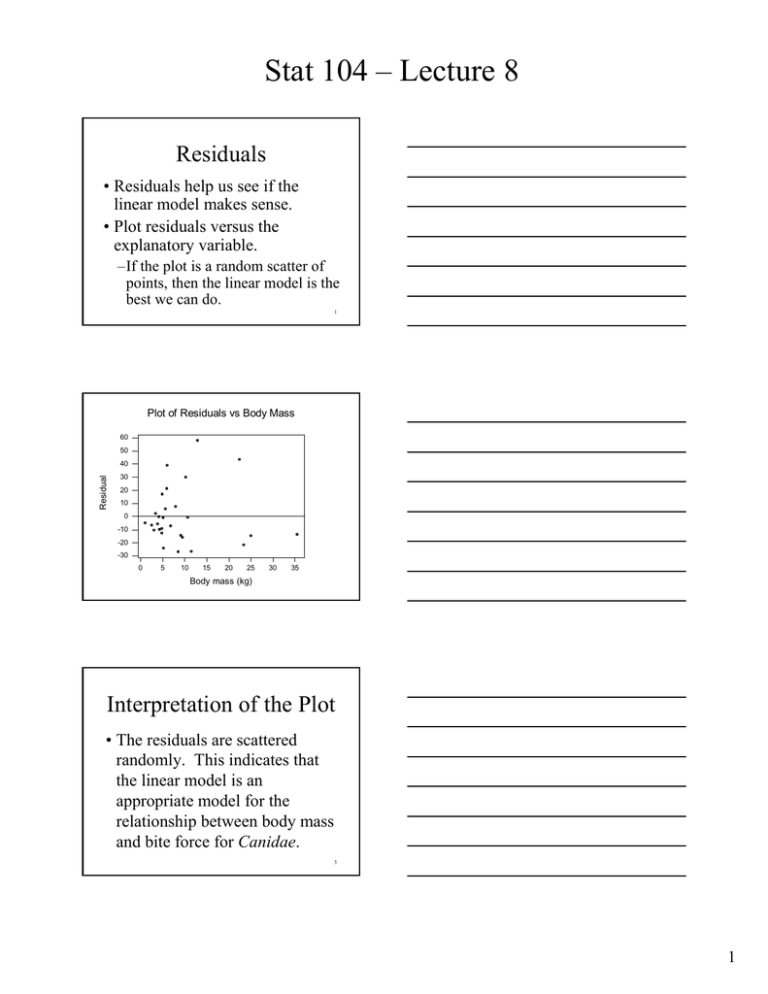
Stat 104 – Lecture 8 Residuals • Residuals help us see if the linear model makes sense. • Plot residuals versus the explanatory variable. –If the plot is a random scatter of points, then the linear model is the best we can do. 1 Plot of Residuals vs Body Mass 60 50 Residual 40 30 20 10 0 -10 -20 -30 0 5 10 15 20 25 30 35 Body mass (kg) 2 Interpretation of the Plot • The residuals are scattered randomly. This indicates that the linear model is an appropriate model for the relationship between body mass and bite force for Canidae. 3 1 Stat 104 – Lecture 8 (r)2 or R2 • The square of the correlation coefficient gives the amount of variation in y, that is accounted for or explained by the linear relationship with x. 4 Body mass and Bite force • r = 0.9807 • (r)2 = (0.9807)2 = 0.962 or 96.2% • 96.2% of the variation in bite force can be explained by the linear relationship with body mass. 5 Regression Conditions • Quantitative variables – both variables should be quantitative. • Linear model – does the scatter diagram show a reasonably straight line? • Outliers – watch out for outliers as they can be very influential. 6 2 Stat 104 – Lecture 8 Regression Cautions • Beware of extraordinary points. • Don’t extrapolate beyond the data. • Don’t infer x causes y just because there is a good linear model relating the two variables. 7 Extraordinary Points • https://netfiles.uiuc.edu/jimar den/www/cuwu/datalist.html –Scatter Plots –Check – Blank Plot and click Update –Add point 8 Don’t Extrapolate • Explanatory (x) – Average outdoor temperature (o C). • Response (y) – Amount of natural gas used (1000 cu ft). yˆ = 6.85 − 0.393 x 9 3 Stat 104 – Lecture 8 Don’t Extrapolate Gas 10 5 0 -5 0 5 10 15 20 Temp 10 Don’t Extrapolate • Explanatory (x = 20) – Average outdoor temperature (o C). • Response (y) – Amount of natural gas used (1000 cu ft). yˆ = 6.85 − 0.393(20 ) yˆ = −1.01 11 Correlation ≠ Causation • Don’t confuse correlation with causation. – There is a strong positive correlation between the number of crimes committed in communities and the number of 2nd graders in those communities. • Beware of lurking variables. 12 4
